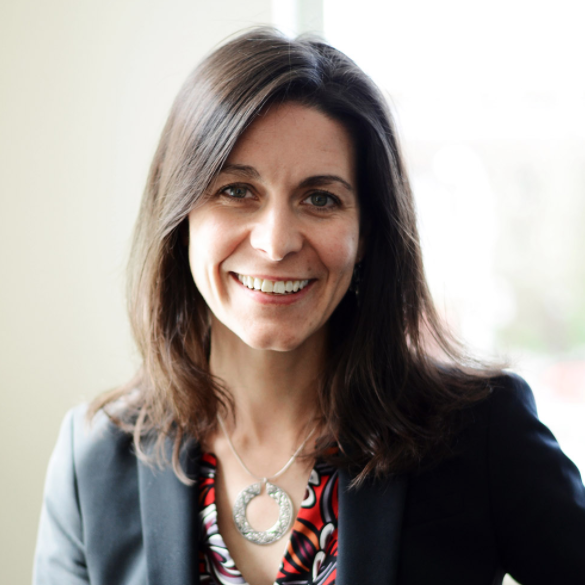Throughout the last several weeks, the faculty of The Seattle School have engaged in ongoing conversation, reflection, and education–individually and collectively–as we considered how to respond to the systematic oppression of and violence toward Black human beings in our country.
For me personally, faces of students keep coming to mind–from the UW, Cascadia College, and some of the faces in our community at The Seattle School. Students who were brave enough to tell the truth about their experiences in higher education. Students who asked me if I knew the racist history behind a phrase I was using. Students who asked me to account for why there were not more faculty and staff of color. Students who taught me that parts of their identities were silenced when teachers requested that they conform to written academic discourse. Students who were often braver and better at imagining love and justice in the world than me. Students who are still teaching me to see, and to listen.
As your Associate Dean of Teaching and Learning, I am committed to doing the work to make our school more inclusive and more welcoming to students of color. I recognize our need to review our syllabi, curriculum, and grading expectations for the ways in which whiteness is privileged. I am committed to collaborating with OSA to hear the experiences and needs of students of color at our school. I am committed to continuing to listen, research, and learn. Both in our culture at large and especially within our red brick building and all our learning spaces at The Seattle School where we train students to serve God and neighbor through transforming relationships, we want better, which means we need to do better. My commitment is to stay in the hard work, and to stay engaged in conversation and relationship as we do so.
Both in our culture at large and especially within our red brick building and all our learning spaces at The Seattle School where we train students to serve God and neighbor through transforming relationships, we want better, which means we need to do better.
As I sit with faculty during the last several weeks, we grieve and lament the ongoing killing of Black Americans by police, and also the harm done to Black, Indigenous, and People of Color by the system of oppression that is built from the ground up in America. We grieve on behalf of our students, staff, and faculty of color who have experienced individual and collective racial trauma, we also recognize that our institution has not always been welcoming to or supportive of some members of our community.
We did not want to just make another statement. Instead, we want to commit to remain in sustained conversation about how to live into the mission of The Seattle School with greater awareness of and attunement to anti-racism. We believe in the power of words to speak something into being and out into the world, as prayer, as a commitment, as a declaration to which we ask to be held accountable. Yet we also understand that a statement of grief and lament is insufficient. We are called to transforming relationship, and the physical, tangible actions that flow therefrom. We recognize that those of us who are white have much to learn, need to do our work and teach ourselves and one another–and follow the lead of people of color. We recognize, deeply, our need to listen, to stay engaged in the conversation and the hard work of self-examination in a sustained way. We have work to do.
We are called to transforming relationship, and the physical, tangible actions that flow therefrom
In the posts that follow in the coming weeks, the Faculty have committed to engage with each other and our colleagues through deep listening, ongoing dialogue, and self-examination. We commit to do this so in light of our call toward transforming relationships–a call that is at the core of who we are, a call that is the methodology of our mission of serving God and neighbor. As we engage in reflection and conversation with one another in relationship, and as we do so with transparency and in public, we also seek to move toward generative action.
It’s probably going to get messy. We will work hard to decenter whiteness and elevate other voices. We will invite the voices of our colleagues of color, to speak, to be heard, and we will strive to do so in relationship and in partnership, without tokenizing people of color or merely performing inclusion. We will need to be corrected. We will likely need to apologize. We commit, however, to acknowledging and resisting white fragility and staying engaged in the conversation.
As I grapple with my own whiteness and commit to being accountable, these are a few of the BIPOC (Black, Indigenous, People of Color) scholars, leaders, and activists, I’m listening to and learning from:
- Ibram X. Kendi, author of How to Be an Anti-Racist and Stamped From the Beginning
- Layla F. Saad, author of Me and White Supremacy
- Rachel Cargle, academic and instructor of online course The Great Unlearn and author of a public address on Revolution
- Alishia McCullough, mental health therapist @blackandembodied
- Ijeoma Oluo, Seattle-based author of So You Want to Talk About Race
“The opposite of racist isn’t ‘not racist.’ It is ‘anti-racist.’ What’s the difference? One endorses either the idea of a racial hierarchy as a racist, or racial equality as an anti-racist. One either believes problems are rooted in groups of people, as a racist, or locates the roots of problems in power and policies, as an anti-racist. One either allows racial inequities to persevere, as a racist, or confronts racial inequities, as an anti-racist. There is no in-between safe space of ‘not racist.”
― Ibram X. Kendi, How to Be an Antiracist


